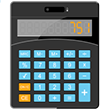
How Employment Tax Incentive Works
Socio-economic inequality and inadequate education are chronic issues that have fuelled high unemployment rates among South African youth. This continually translates into further socio-economic exclusion, a floundering economy and lower tax revenues for the government in the future. The Employment Tax Incentive (ETI) initiative, implemented in 1 January 2014, was established by government to encourage employers to hire young, inexperienced job seekers while their wages are unaffected.
According to the National Treasury 2017 Budget Review, more than 50 000 organisations took up the employment tax incentive between 1 January 2014 and 31 January 2017. Between 1 January 2014 and 31 July 2015, about R3.9 billion was paid on claims. The incentive has been extended to 2019 and many more unemployed youth and small to medium size business stand to benefit.
Does your business qualify for an Employment Tax Incentive?
| Registered for Pay As You Earn (PAYE) or eligible to register for PAYE. |
|
| It should not fall in the national, provincial or local sphere of government, be parastatal or a municipal entity. |
|
| The company should not be a public entity listed in Schedule 2 or 3 of the Public Finance Management Act (other than those public entities designated by the Minister of Finance by Notice in the Gazette). | |
| Businesses that have been previously disqualified by Minister of Finance due to the displacement of an employee or by not meeting the conditions prescribed by the Minister are ineligible. |
When does an employee qualify for Employment Tax Incentive?
| 18 - 29 years old
|
|
| They have a South African ID, a valid asylum seeker permit or an ID in terms of Section 30 of the Refugees Act. | |
| Employed on or after 1 October 2013. |
|
| Earn at least the minimum wage according to the Bargaining Council, Collective Agreement or Sectoral Determination. When no wage regulating measure is applicable, they should earn at least R2 000 per month (160 employed hours). |
When are employees ineligible?
| Domestic workers | |
| “Connected person” to the employer | |
| Monthly remuneration of R6 000 or more. |
How to calculate your incentive claim value
 |
Step 1.Identify qualifying staff members for the month |
 |
Step 2.Verify the employment period that applies to each of them |
 |
Step 3.Determine each of their monthly remuneration packagesWhen working out the remuneration amount to be used to calculate the Employment Tax Incentive, if the qualifying employee has been employed for:
|
 |
Step 4.Calculate the incentive value per qualifying staff member |
 |
Step 5.Aggregate the results for all of them |
Since 1 October 2016, monthly claims can only be made up to the date of each 6-monthly reconciliation. No further claims for that reconciliation period will be allowed after this period and any excess is refundable.
Employers who qualify should calculate and claim the incentive monthly
The Employment Tax Incentive is captured in the Payment Details section of the EMP201, used by SARS as a statement in which the employer declares the total payment together with the allocations for PAYE, Skills Development Levy (SDL), Unemployment insurance Fund (UIF) and Employment Tax Incentive.
*Employed and remunerated hours = Ordinary hours – Unpaid hours + Additional hours (including overtime)
Note: Taxable company contributions and perks are also included for Employment Tax Incentive purposes.
John is a 24 year old male. Employing him means that you can get tax back as follows:
Year 1 |
Year 2 |
Up to R1 000 per month |
Up to R500 per month |
Up to R12 000 per year |
Up to R6 000 per year |
Up to R18 000 over 2 years |
|

20 qualifying
employees

Cost of
Employment
R2 000 pm x 20 employees
over 2 years
R960 000
Cash back with
Employment Tax Incentive
R360 000
Actual cost
of employment
R600 000
37.5% saving
Employers could face penalties under these circumstances:
- An employer claims an employment tax incentive for staff earning less than the minimum wage or less than R2 000 per month (where minimum wage is not applicable). The employer will be liable for 100% of the claim made for such employees which will result in a short-payment of PAYE and possible interest in penalties.
- If an employer is found to have displaced an employee to hire an eligible person, they will be liable for a penalty of R30 000 for each such incident.
Companies that qualify for this employment tax incentive are ones that have committed to employing and upskilling young, inexperienced job seekers. Formulas are sometimes difficult to understand and Employment Tax Incentive increases a business’ administrative overhead, requiring close management to avoid penalties. FCS Precision Payroll’s Director Brenchia van den Berg, who’s experienced in Employment Tax Incentive management helps businesses enjoy the financial gains of uplifting youth and moving the economy forward.
Related: Employment Tax Incentive encourages career development
